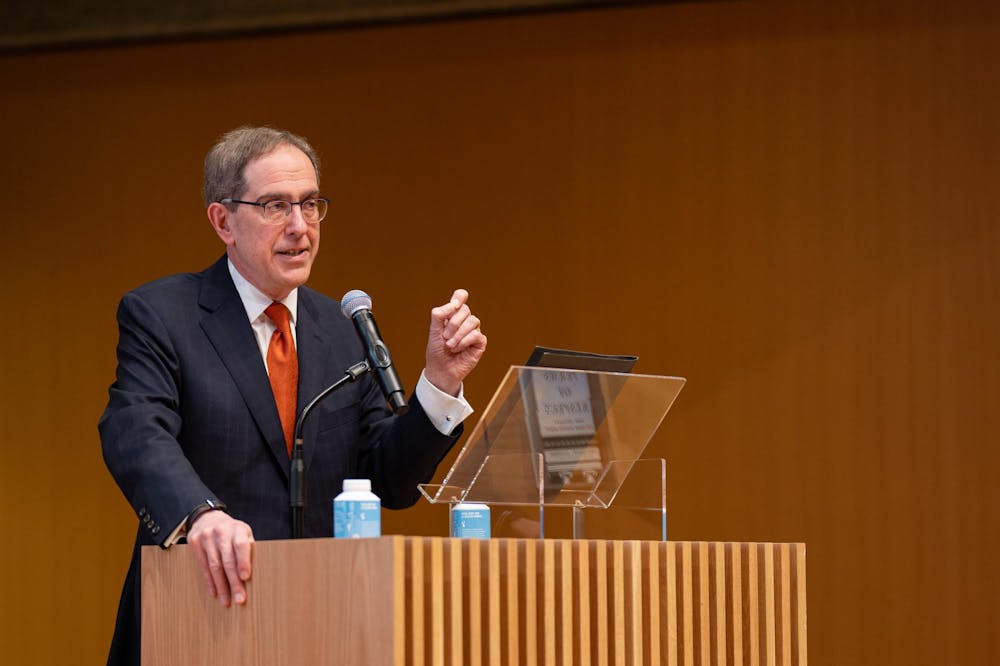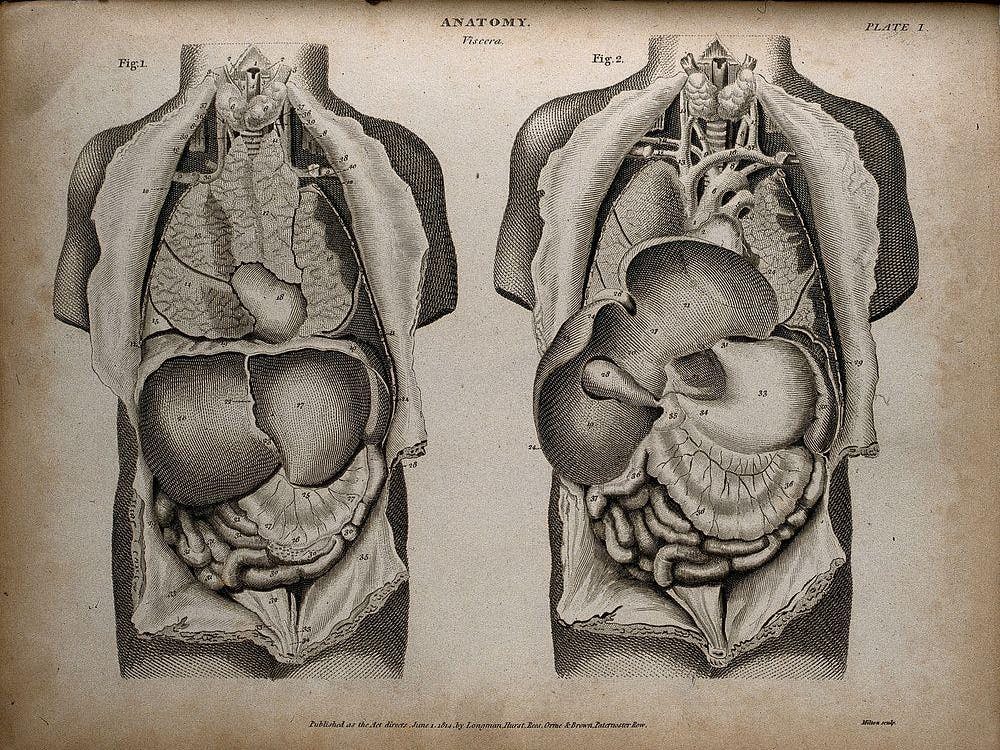University President Christopher Eisgruber ’83 spoke about defending free speech on college campuses during a book talk at the new Princeton University Art Museum’s Grand Hall on Wednesday. The event was open to University students, faculty, and staff, but had limited spots. Eisgruber spoke for over half an hour before taking questions from the audience.
Since the release of the book, “Terms of Respect: How Colleges Get Free Speech Right,” on Sept. 30, Eisgruber has made a series of appearances in a book tour.
Eisgruber noted the tense climate for higher education under the second Trump administration. “American research universities are the best in the world, but today, they face unprecedented and withering attacks from our country’s own government,” he said. “Much of this attack is both unlawful and broadly unpopular.”
However, the book’s manuscript was submitted to the publisher prior to the beginning of the new administration.
“I am glad of that because I think, if that were not the case, I would have had to write a book that was in part about the current administration,” Eisgruber said. “I think there are fundamental issues in American politics that were roiling our campuses before this administration took power and that deserve our attention, and I want to draw attention to those conceptual and more durable issues.”
As event attendees entered the museum, several students stood outside distributing flyers titled, “Free Speech at Princeton: A People’s History.” The flyer describes arrests of students that occurred during the Gaza Solidarity Encampment in Spring 2024 and restrictions the University placed on protest.
Jabari Lawrence GS was one of the students passing out the flyers outside the event. “If you were a Princeton parent, and you came to this event, you’re only going to get one side of the story,” he said. “We wanted to give people context on that and have conversations with people who were attending to say … no, universities are not getting free speech right.”
During the talk, Eisgruber credited former United States Supreme Court Justice Louis Brandeis for the modern expansiveness of free speech and spoke about how he believes colleges are generally succeeding in upholding those ideas, the role of polarization and social media in creating a civic crisis in America, and why universities are under attack.

Eisgruber also discussed the impacts of William F. Buckley Jr.’s 1951 book “God and Man at Yale,” and its enduring influence in shaping some conservative attitudes toward higher education.
“What Buckley discovered in 1951 was that a few anecdotes or quotations stripped from context suffice to trigger anxiety among people already fearful that free-thinking faculty members and their youthful charges will displace the old way of doing things,” he said. “It is that general strategy … that has kept his book in print for three quarters of a century and counting.”
Eisgruber also spoke about the Foundation for Individual Rights and Expression (FIRE). The organization produces an annual ranking of American universities based on free speech on their campuses. Many peer universities, notably Harvard, regularly receive some of the lowest rankings.
He quoted FIRE Director of Polling and Analytics Sean Stevens, who said, “I’m not necessarily surprised that a technological school has a better speech climate, primarily for the reason that they don’t really talk as much about controversial topics,” when Michigan Technological University was ranked first in FIRE’s 2023 list.

“That, in a nutshell, is the problem with the stories that FIRE tells about campus speech. They too often code controversy as though it were equivalent to censorship,” Eisgruber said.
“He’s always had a really strong commitment to academic freedom,” said Elizabeth Harman, a Princeton professor of philosophy and the University Center for Human Values, in reflection of the event. “I think the basic fact that we have to keep talking to each other across our really significant differences is vital in our society, and it’s vital on our campus.”
However, some student questions pointed to issues of self-censorship. One attendee asked about privacy and how students can feel safe expressing their beliefs in the context of new technologies and doxing. In response, Eisgruber highlighted the Council of the Princeton University Community’s recent decision to limit where recording can happen on campus. “I think the policy is responsive to exactly what you describe,” he said.
The event’s final question was about how U.S. citizens should approach expressing their opinions online. Eisgruber concluded, “If the government censors us, that’s on the government. If we stop talking, then that’s on us, and we have just surrendered our democracy.”
Oliver Wu is a News contributor for the ‘Prince.’ He is from Stony Brook, N.Y. and can be reached at oliver.wu[at]princeton.edu.
Please send any corrections to corrections[at]dailyprincetonian.com.








